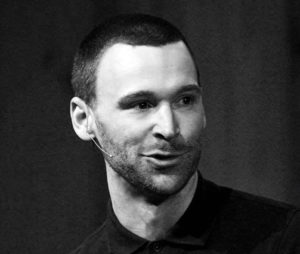 A few weeks ago, I had the pleasure of celebrating National Coming Out Day with my family where we were treated to outstanding performances by the Knoxville Gay Men’s Chorus and Tony-winning musician and actor, Levi Kreis. During his set, Kreis, who is from the town of Oliver Springs near Knoxville, Tennessee, talked about his experiences leading worship, preaching revivals and coming to terms with his sexual identity within the context of Christian ministry and the music industry.
A few weeks ago, I had the pleasure of celebrating National Coming Out Day with my family where we were treated to outstanding performances by the Knoxville Gay Men’s Chorus and Tony-winning musician and actor, Levi Kreis. During his set, Kreis, who is from the town of Oliver Springs near Knoxville, Tennessee, talked about his experiences leading worship, preaching revivals and coming to terms with his sexual identity within the context of Christian ministry and the music industry.
He noted that even in early childhood he knew there was something different about him; it wasn’t just his sexuality, but rather the unique call that he felt had been given to him from the divine. In a 2017 article in Rage, a San Diego gay lifestyle magazine, Kreis described his faith journey:
“I’m very committed to having a spiritual conversation within our community. I understand that a great deal of our community has been wounded by religion and it was the source of my many pains. Not only the six years of conversion therapy, but in my life, I have experienced real discrimination: I have been denied education by a southern Baptist college, I have been denied employment countless times.… All for being gay.
“The thing any young person should know is this: Quit bitching and get tough! No one has to like you, but you have to love yourself, deeply and meaningfully….
“Only you can give yourself that kind of lasting love. Self-love is my number one sermon to every young person coming up behind me. Our happiness depends on no one else but us; to think otherwise would be to insult your own personal power. And you, dear one, are more powerful than you know.”
What I was most struck by during Kreis’s performance, in which he interspersed his searing personal monologue with hits from his extensive catalogue, was not just his musical virtuosity, but the way he kept talking about God and love to a room full of people who had very likely been abandoned by their faith communities and their families at some point in their lives. It was a gift to bear witness to someone pastoring away, despite having been told he could never be a faith leader.
I almost walked the aisle.
“I am becoming increasingly less inspired by the loudest, ‘wokest’ or most ‘theologically sound’ voices.”
The more time that passes since I last found myself in the role of a pastor praying over potlucks in a basement fellowship hall, the more I find myself struggling to remember what it was like to love God more than I love actual, flesh-and-blood people. What I mean by this isn’t that I have forgotten what strong, sacrificial faith looks like, but having spent so much of my life as a cynically self-righteous know-it-all who is prone to talk too much and too fast, I have found myself struggling to believe in God and the necessity of Church on the other side of professional ministry.
It’s almost as if my entire faith was rooted in getting other people to believe in things on my behalf, as a way of providing evidence as to whether or not I was good at being a pastor, which for me is shorthand for being good at finally pleasing God. I would certainly have told you that I loved God and loved people equally; but what I later came to realize was that I loved my idea of God and I loved when people agreed with that idea publicly and privately (but mostly publicly, such as words of affirmation on the Internet).
As the distance has grown from my years as a pastor, I am learning that when my beliefs have nothing to do with my platform or my church or my ongoing employment, the only question I’m trying to get answered is whether or not my Christianity has any positive impact on the lives of my neighbors, my family, my psychotherapy patients and the members of my community most in need. If Christianity only matters for what happens to me and to people a lot like me after we die or even while we are alive (to the great detriment of others who aren’t like us), then I can’t say I find Christianity all that interesting as a philosophy or religious identity.

Levi Kreis (Photo/Creative Commons)
In times like these, I am becoming increasingly less inspired by the loudest, “wokest” or most “theologically sound” voices. Instead, I am far more moved by voices who are attempting to practice the way of God without getting anything in return for their efforts.
Latin American liberation theologian, Gustavo Gutierrez, in his book On Job: God Talk and the Suffering of the Innocent, referred to this kind of faith as a “disinterested belief,” because it is a faith steeped in the utter negation of self-interest – even unto death and damnation – in order to bear witness to radical love in the midst of catastrophic loss. For oppressed and maligned communities, it could be seen as the practice of radical self-love in the face of outright alienation and rejection.
Which is why it was so meaningful for me to see more than 100 of my neighbors and friends proudly being themselves as they sang, performing for what evangelicals I grew up with liked to call “an audience of One.” Their voices – and the prophetic resistance leaking out of these voices – pushed me to a place beyond things like today’s culture wars or the constant updates about overwhelming support for President Trump among white evangelicals and into the kind of moment where it seems appropriate to shut up, close your eyes and remove your shoes in the presence of something divine.
“I have found myself struggling to believe in God and the necessity of Church on the other side of professional ministry.”
It reminded me that everyone attempting to self-disinterestedly put flesh and blood on love is a pastor, most especially when they don’t get paid for it.
Gutierrez goes on to argue that this question, whether or not anyone can believe in God without reward, isn’t just one question among many, but rather the question at the center of the Judeo-Christian worldview. It is the question militantly embodied throughout the book of Job and one that plays softly in the background of the life, death and resurrection of Jesus. It is the question I hear pulsating within every note of Levi Kreis’s piano. And it is the question that drives the work and witness of so many of my LGBTQ faith heroes who practice Christianity knowing that they are rejected by and cut off from “the true Church” and that they may never find what they’re looking for from their families, from the communities that raised them, and maybe even from God.
When these pastors and prophets pray, preach and love anyway it reminds me that Christianity, at the very bottom, is about stubbornly putting flesh and blood on the inexplicable, self-sacrificing and abundant love of a crucified God – even if it gets you excommunicated or killed. Even when we reject it, ignore it or attempt to lay it in a tomb, this love will eventually save us anyway. That’s why it’s such good news.
“Everyone attempting to self-disinterestedly put flesh and blood on love is a pastor, most especially when they don’t get paid for it.”
Who better to lead the Church in a time when the coffers are empty, the roof is leaking and her witness has been severely compromised than a group of stubborn evangelists who have believed in God without the benefit of support from institutional religion?
So, while the choir sings our final hymn together, I’ll meet you down front. Perhaps our disinterested sisters and brothers in the faith will receive us kindly, despite our taking so long to listen to them and to their invitation for us to go and discover that that tomb has been empty for a long, long time now.
And all (heavy emphasis on the “all”) God’s people said, “Amen.”
